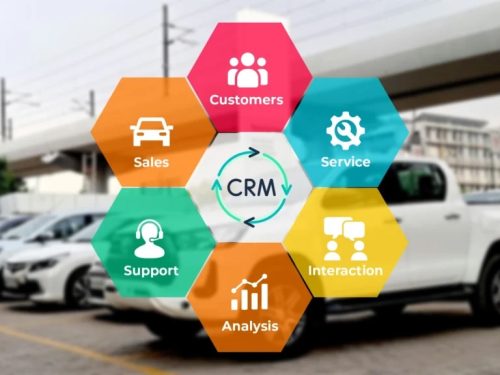Why is Web Based CRM the First Choice for Companies Today?
Companies always look for innovative ways to streamline business operations, improve customer interactions and drive growth. An effective way to transform your business and customer relationships is Web Based CRM software. Though traditional CRM software has been quite popular, accessibility and on-premises installation issues have paved the way for online and cloud-based alternatives. The latest systems offer the flexibility to grow and allow seamless and secure customer relationship management with an active Internet connection. This move keeps companies agile, responsive and competitive. Let’s delve deep into the benefits and differences between traditional and online CRM technology.
Understanding the Basics of Online CRM Systems
Online, cloud or web-based CRM systems allow companies to organise and maintain customer data without complex installations to foster long-lasting business relationships. One important characteristic of the latest technology is its accessibility through internet-connected devices. Meanwhile, the core features and functionalities streamline customer relationship management and promote a collaborative business environment. In addition, access to centralised customer information databases enables companies to track and manage business interactions at various touch points effectively. Likewise, automation of email campaigns, lead scoring and task reminders also improves efficiency while analytics and reporting tools promote informed and strategic decision-making.
Navigating to Goal-Oriented CRM Technology
The ease of use and accessibility of online CRM software have made this technology popular among businesses enabling them to integrate their systems easily without specialised IT support and complex installation. Your marketing, customer service, project management and sales pipeline management teams can use CRM systems to achieve their targets. However, you should choose the CRM systems that align with your business goals. Let’s explore different CRMs and their significance for your business.
1. Operational CRM
These CRM simplify the execution of sales, marketing and customer service processes. They are designed to improve customer retention and acquisition so your teams can easily generate new leads, nurture or convert them and retain them by providing superior customer service. This system is suitable for all sizes of businesses and automates various aspects of sales and marketing processes like follow-ups and tracking touchpoints.
2. Analytical CRM
An operational CRM streamlines the process of getting leads into the sales funnel, analytical systems empower your teams to learn how leads are moving in the sales funnel. These systems can capture, store and analyse customer data so you can evaluate the efficiency of your sales, marketing and customer service efforts and adjust your business strategies using these insights. The performance reports like customer satisfaction scores and sales history help you identify areas that need improvement.
3. Collaborative or Strategic CRM
The main goal of this CRM is to promote collaboration among your teams and departments to enhance customer service experiences. When your sales, marketing and customer service teams are on the same page about customers, they can resolve issues efficiently and quickly. Meanwhile, strategic CRM systems work similarly to collaborative CRM but function differently. Collaborative CRM concentrates on quick improvements but strategic systems focus on long-term engagements to support retention and loyalty.
On-Premises vs. Online CRM: Which is Best & Why?
Traditional on-premises CRM has been there for a long wherein businesses host and operate networks and servers containing customer databases. Besides infrastructure, companies pay for and manage all resources required to run on-premises systems. These include a dedicated IT team to maintain the CRM system and other upfront costs. Conversely, service providers manage all these infrastructure costs in cloud or Web Based CRM. In this setup, companies do not have to invest in upfront costs to host and manage the entire service because service providers are responsible for maintenance, updates and security making it the best choice for companies.
How Web Based CRM Can Streamline Business Communication? Astounding Benefits
1. Ease of Access Through Any Internet-Enabled Device
Your CRM data is only effective when updated with the customer’s latest information. However, remote working and a dispersed workforce have made sharing information difficult in traditional systems. Luckily, the latest online systems allow users to access and upload the latest information easily through any internet-connected device. This keeps your workforce on the same page and promotes team collaboration.
2. Eliminate Hardware Requirements
As web-based CRM depends on cloud technology, they do not need hardware or software licenses. It saves significant costs on installation, new equipment and support solutions. Moreover, companies with limited IT skills can manage the system easily. On-premises solutions add inconvenience and costs for maintenance, implementation and support.
3. Allow Fast Implementation
Online cloud-based CRM does not require hardware so it is easily implemented and goes live. Moreover, you do not have to handle downtimes because you depend on service provider infrastructure other than the local system, which means fewer or negligible disruptions.
4. Real-Time Upgrades
In on-premises solutions, companies should have the latest software version which also needs continual upgradation. However, the latest software may not fit your hardware so you have to consider replacement. With a cloud-based solution, this is the responsibility of your service providers.
5. Cost-Efficient Solution
Online CRM systems are less expensive solutions than traditional on-premises solutions. Companies can reduce their upfront costs through this flexible and budget-friendly solution that is otherwise spent on infrastructure development, hardware purchase and training teams.
6. Facilitate Scalability & Flexibility
These systems are highly flexible and scalable. They can quickly adapt to your changing needs and scale with your fluctuating business needs. Their ability to scale up and down allows you to evolve and manage relationships efficiently.
How is Cloud CRM a Secure Option for Your Business?
cloud-based CRM has revolutionised the way businesses manage their relationships and business data. Another important perk of this technology is its ability to connect with other platforms effortlessly. In addition, you can consolidate customer data from various sources to get useful insights and offer personalised interactions. These systems provide robust security features to protect sensitive customer and business data. They keep valuable information secure through a secure authentication process, encryption protocols and backups. Your teams can use all functionalities securely from anywhere enhancing responsiveness, productivity and agility.
Final Thoughts
Embracing Web Based CRM keeps you ahead in industry trends while leveraging this innovative technology allows you to evolve with your growing business needs. This AI-driven solution enables companies to get insights about customer preferences, offer personalised services and develop long-lasting business relationships. CherryBerry UCM’s online CRM allows you to set targeted campaigns and stay engaged with your audience on their preferred communication channel. Reach us to acquire long-term success in your business relationships.






